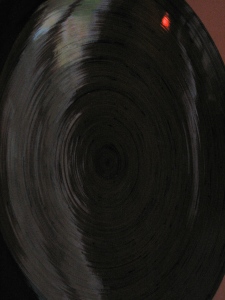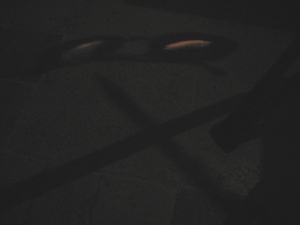
– Photo by Jan Ketchel
Our deepest issues are unrelenting. They appear and reappear at different stages of our lives, often clothed in new costumes, but underneath lie the same issues.
We can recognize that we’ve once again stumbled upon a core issue when we find ourselves leveled, feeling utterly defeated. At such times, it is natural to be overtaken by feelings of hopelessness and helplessness. Our core issue appears insurmountable and we wonder if we’ll ever overcome it in this lifetime!
At such times, we are equally likely to be drawn into the energy field of blame, whether assigning it to self or other. Blame offers a respite from feelings of defeat but offers no real solution to our deepest issues.
Reflecting upon the course and meaning of his life, Carl Jung wrote, “The meaning of my existence is that life has addressed a question to me.”
From Jung’s viewpoint we might turn and view our own deepest issue, our nemesis, as the question that life has addressed to us. Life asks us to take up this question in the form of a core issue, a deeply painful problem, and awaits our answer to that question. Life itself needs the answer to know how to proceed in new directions.
Using myself as an example, I can say that life has asked me very deep questions about the nature of family. My earliest experiences in the womb, as I experienced the violence of my biological father while in a state of oneness with my mother, were to mark and initiate my core challenge as one of confrontation with the ambiguous nature of family. My discovery, at the dawn of adolescence, that but one of the parents who raised me was actually my biological parent taught me that my love for my parents transcended biological origin. By mid-adolescence I was confronted inwardly with the truth that my growing needs could no longer be housed by my family. This led to the painful but necessary decision that the truth was more important than loyalty to family and I had to leave. A few short years later, at the age of nineteen, I married Jeanne, an adopted woman deeply bonded to her adoptive parents, with no connection to her own biological parents. With this union, though we deeply bonded as a unit and created a new family, the challenge continued.

– Photo by Jan Ketchel
As a husband I had to let my partner go. As a parent, I’ve had to deal with the serious addiction issues of two sons. These challenges compelled me to make decisions and take actions that to conventional society appeared to defy the unconditional acceptance of family at all costs. I have borne the tension of life and death, as well as rejection, disdain, and not being understood by many as I’ve navigated this path of doing the right thing beyond convention. Doubt is a constant companion when you choose to travel outside the gates of the norm; it’s a solitary path.
I am quite contented with the tension of my solitary path because I know it is the meaning of my life; it’s my answer to the question life has addressed specifically to me.
Jung mused: Were our deepest issues in fact Karma from previous lives? If this be the case, we bring into this life the state of our knowledge accrued from previous life attempts to solve life’s question, renewed again in the circumstances of our current incarnation. Perhaps on a broader scale we carry the Karma of our genetics and must grapple with the failed attempts of our ancestors to solve the questions life addressed to them as well.
Perhaps life simply addresses us with the relevant question needed to solve its stumbling blocks at this stage of the evolution of our species. Perhaps life asks us to find the answers to our survival as we stand on the brink of destruction.
I imagine that our deepest issues embody both personal and impersonal questions, that is, Karmic and ancestral, as well as the evolution of life itself in our time.
At an impersonal dimension, I believe that life has addressed the question of family to all of us, as how we answer this question is critical to our survival, more so than ever. Ancient attachment to family in the form of “blood is thicker than water” has resulted in the blind loyalty to tribalism that is at the epicenter of current world conflict in the Middle East. Here we witness daily a willingness to take down the world in defense of religion and the blood line.
But the Middle East is merely a mirror of a pervasive tribalism that afflicts the entire world in multitudinous forms. Examples include the needs of my country over yours; this is tribalism. The world financial elite is a tribe opposed to the tribe of the 99%. The tribe of Republicans are at war with the tribe of Democrats, no holds barred.
The dominant player in these tribes is loyalty, blind loyalty, over truth. Loyalty to the blood line or to the Club breeds greed, because in that scenario the only thing that matters is me and mine; we alone are entitled.

– Photo by Jan Ketchel
For life to survive at this juncture in human evolution we must transcend the binding limitations of blind loyalty and open the family to embrace the true needs of our interdependent whole. This isn’t romanticism; this is concrete fact.
These are the answers I’ve come to through deeply suffering the needs of the family that life has challenged me with. If we can all look to our deepest issues as life beckoning us to solve the deepest mysteries and aberrations that we all share, that we all might flourish freed of unsolved problems, perhaps then we can learn to be more loving toward ourselves as we suffer our deepest issues and bring them to resolution. Perhaps then we can all be and embrace the Human Family—our one true family.
Finding meaning,
Chuck
Quote from Jung: Memories, Dreams, Reflections p. 318
